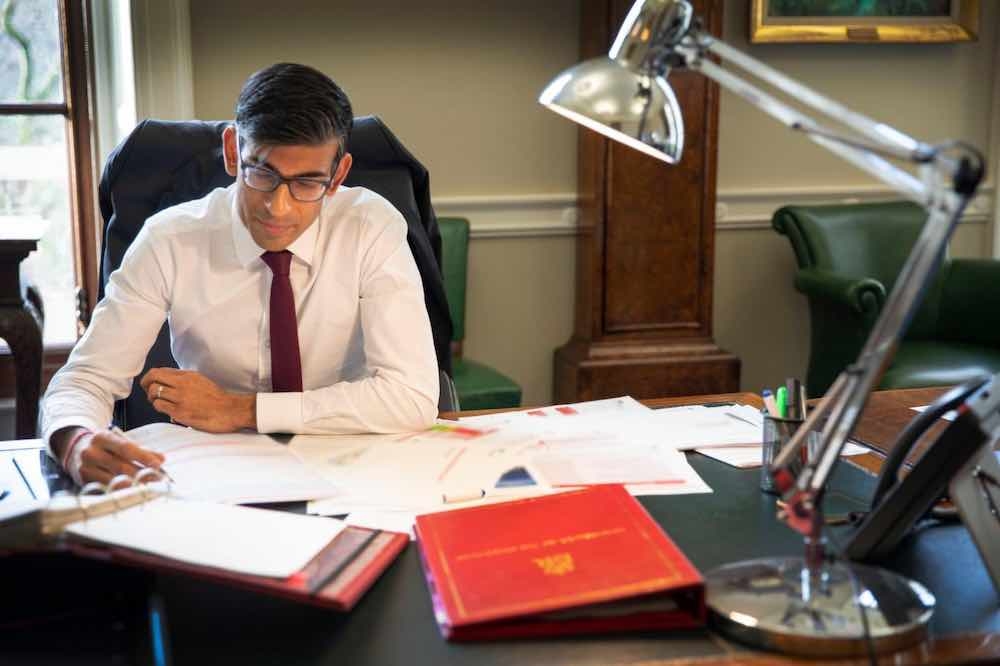Former Chancellor of the Exchequer Rishi Sunak MP has become Prime Minister today after rivals dropped out of the Conservative Party leadership race.
Former Prime Minister Boris Johnson dropped out of the race at the weekend and Penny Mordaunt today.
Their exits means that Rishi Sunak, 42, has become Prime Minister, the first Asian to take the role. He is also one of the UK's youngest ever Prime Ministers and the youngest in modern times.
The race to become PM was opened up after former Prime Minister Liz Truss resigned last Thursday following a disastrous mini-Budget.
The fall out from the mini-Budget trigged a wave of uncertainty in the gilt market and led to Bank of England intervention.
As new PM, Mr Sunak will face a plethora of financial challenges including cutting back on government spending, stabilising the gilt market, resolving the Pensions Triple Lock and striving to lower inflation at the same time as dealing with the cost of living crisis and soaring energy bills.
Mr Sunak was Chancellor from 13 February 2020 to 5 July this year. He resigned, along with more than 50 ministers, after former Prime Minister Boris Johnson lost the confidence of the Parliamentary Conservative Party following the 'Partygate' revelations and fines.
Financial markets were relatively steady at lunchtime today with news that Mr Sunak was to become Prime Minister. He is expected to meet King Charles soon when the King will ask him to become PM.
Mr Sunak has served in a number of ministerial roles including as Chief Secretary to the Treasury. He has been the MP for Richmond in Yorkshire since 2015.
He was born in Southampton to parents of Indian heritage who emigrated from East Africa to the UK. He was educated at Winchester College and read Philosophy, Politics and Economics (PPE) at Oxford. Prior to politics he had a career in financial services, including spells at Goldman Sachs and a hedge fund.
His wife, Akshata Murty is from a wealth Indian family and faced criticism for being a non-domiciled resident. She has since agreed to pay UK tax.
Sarah Coles, senior personal finance analyst at Hargreaves Lansdown, said: “This isn’t the same Rishi Sunak who gave Santa a run for his money during the pandemic. He’s going to have an incredibly tight hold on the purse strings. Jeremy Hunt is likely to stay at Number 11 with his mantra of tough decisions and spending cuts. It means we may not be able to rely on extra help when we’re facing horrific price rises next April.
“It was partly Sunak’s commitment to keeping a lid on spending, and higher levels of taxation that persuaded Conservative Party members that there had to be an easier answer during the last leadership election. The short and messy premiership of Liz Truss may well have cemented the opinion that right now there’s no alternative.”
James Athey, investment director at Abrdn, said: “Markets were incredibly nervous last week when it became clear that several candidates were emerging for the now-vacant Conservative Party leadership position – including former PM Boris Johnson.
"The economic package on the table currently, as laid out by current Chancellor Hunt, is very close to the one that Rishi Sunak campaigned on back in the summer. For that reason, anyone who isn’t Sunak could conceivably u-turn again and markets are not in the mood to forgive any further risks to the fiscal outlook.
“There was thus a large collective sigh of relief this morning when it emerged that Boris Johnson had withdrawn. The relief got more palpable this afternoon when the only other candidate – Penny Mordaunt – recognised that she didn’t have the support to proceed and threw her hat in with former Chancellor Sunak. The lack of need to roll the dice with Tory party members again and the speed with which the new PM can now enter number 10 make this outcome the most market friendly one that was possible in the short term. That’s probably in the price now.
“The economic future however remains fraught; inflation remains far too high and the Bank of England hasn’t yet really grasped the nettle. As such, the future is far from ideal for UK investors.”
• This is a developing story. Please check back later for reaction and updates.

